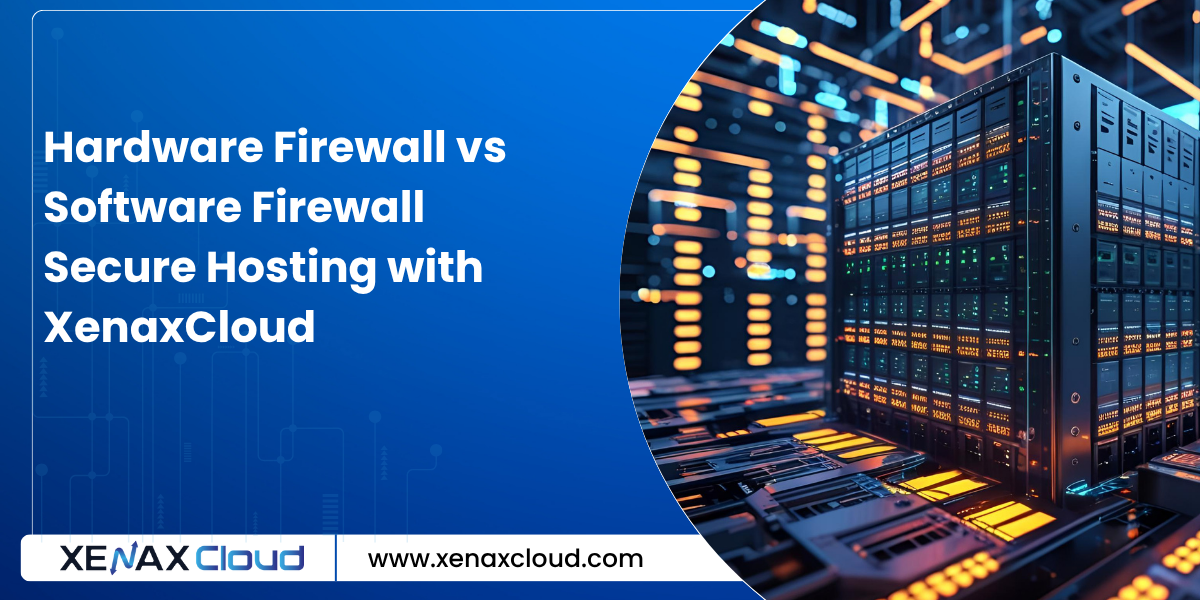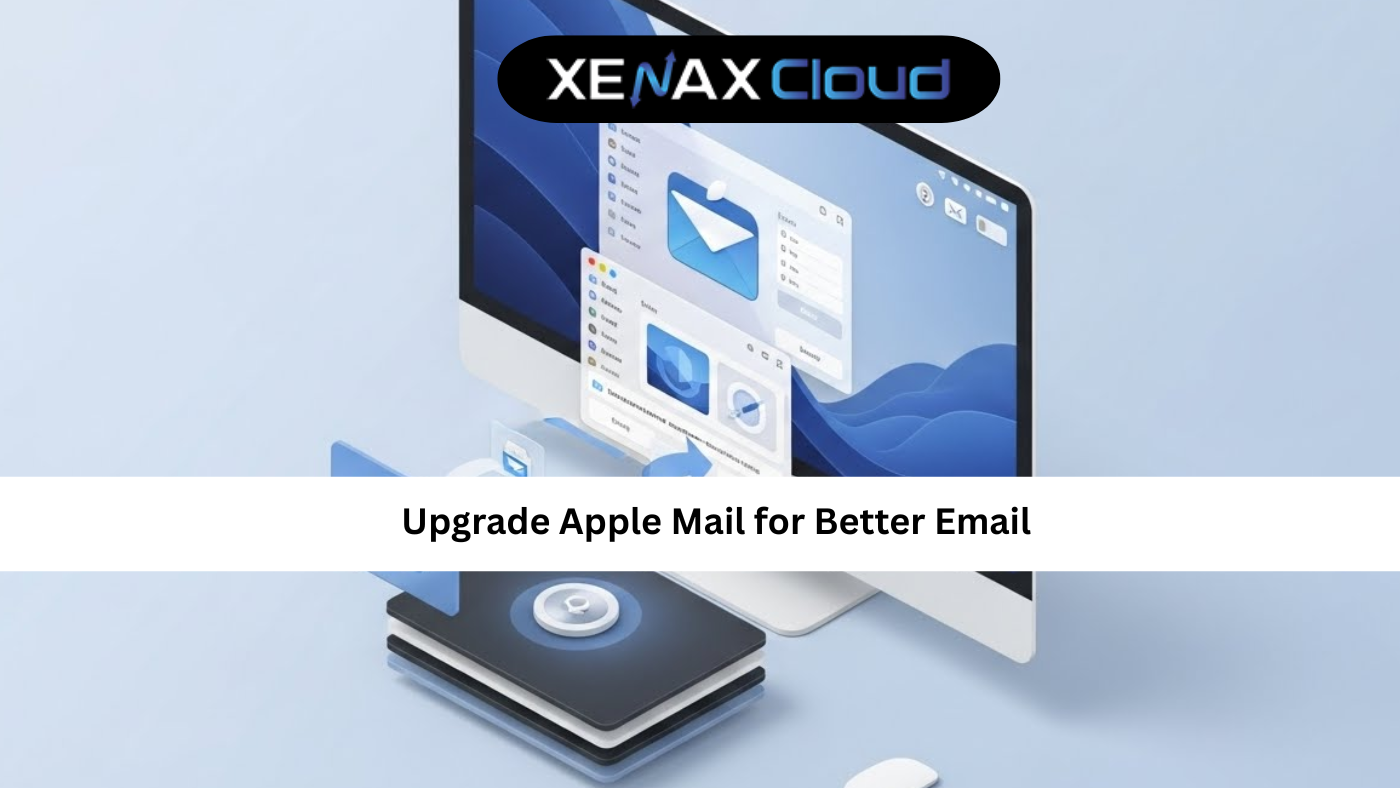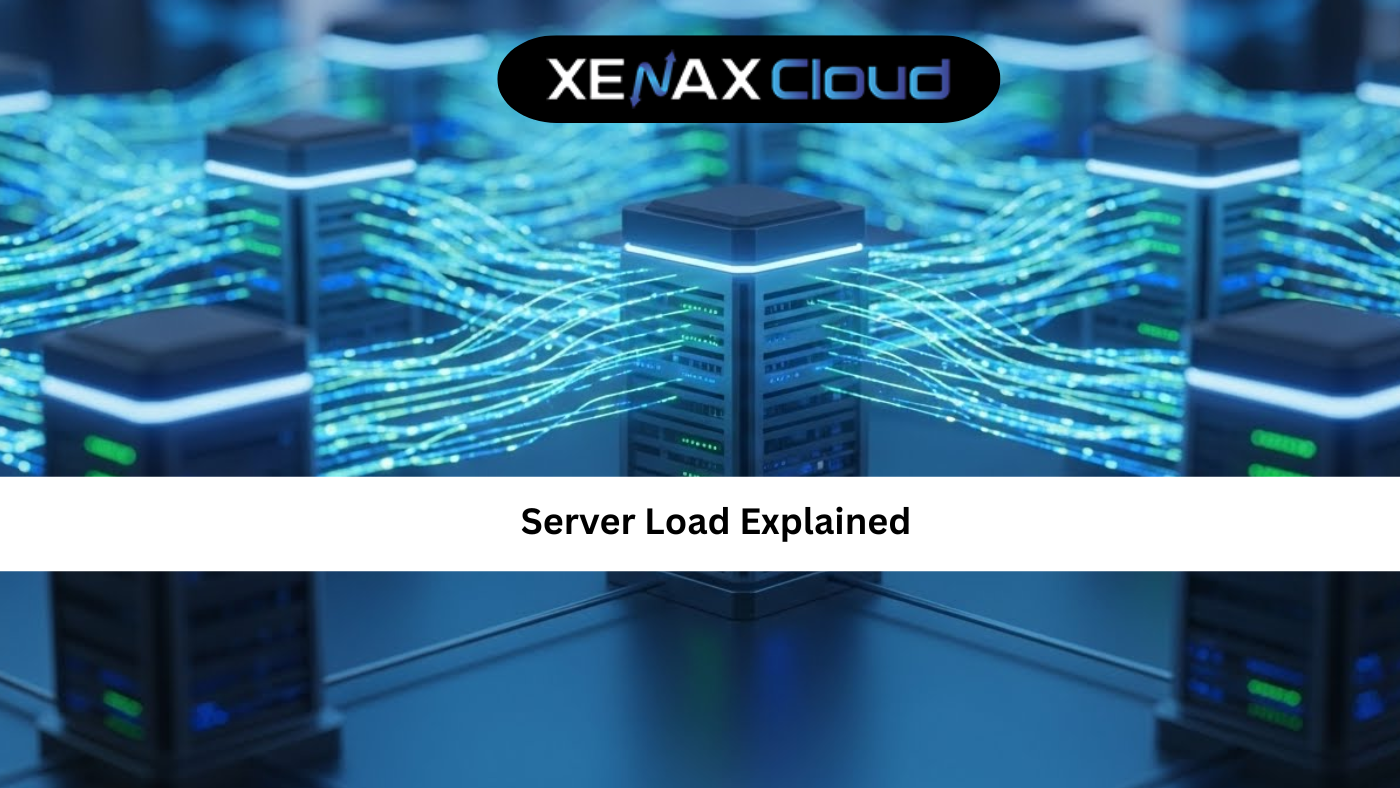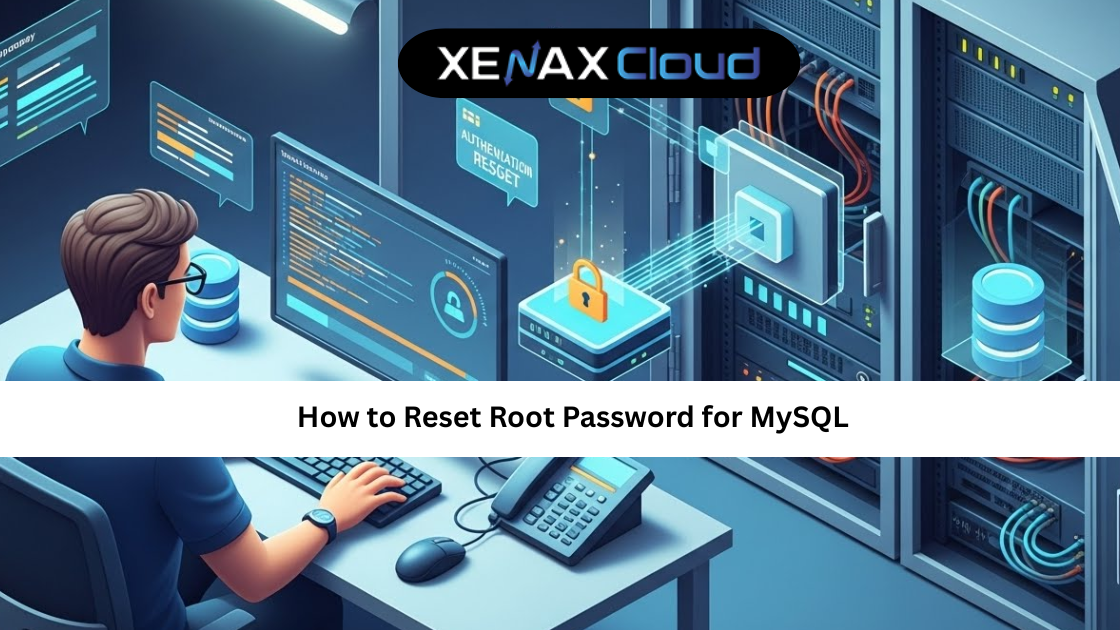Choosing between a hardware firewall vs software firewall is critical for securing your online assets. Understanding the software firewall difference and how a hardware firewall operates can help you safeguard your website or server effectively. XenaxCloud, with its India-based data center, offers robust hosting solutions through its Dedicated Servers, VPS Server, Shared Hosting, Indian RDP, Domains, and Reseller Hosting. This comprehensive guide explores hardware firewall vs software firewall, explains their roles in web hosting India, and highlights why XenaxCloud’s Dedicated Servers provide top-tier security with a 99.5% uptime guarantee.
Understanding Hardware Firewall vs Software Firewall
What Is a Hardware Firewall?
A hardware firewall is a physical device placed between your server and the internet, filtering incoming and outgoing traffic based on predefined rules. Key features include:
- Dedicated Device: Operates independently of the server.
- High Performance: Handles large-scale traffic efficiently.
- Network-Level Protection: Secures entire networks.
- Minimal Resource Usage: Doesn’t consume server resources.
XenaxCloud’s Dedicated Servers support integration with hardware firewall devices for enterprise-grade security.
What Is a Software Firewall?
A software firewall is a program installed on a server or computer, controlling traffic at the application level. Key features include:
- Flexibility: Customizable rules for specific apps.
- Cost-Effective: Often included in operating systems or hosting plans.
- Ease of Updates: Quickly patched for new threats.
- Device-Specific: Protects individual servers or devices.
XenaxCloud’s VPS Server and Shared Hosting include software firewall options.
Software Firewall Difference
The software firewall difference lies in its installation on the server versus the standalone nature of a hardware firewall. Software firewalls are ideal for small setups, while hardware firewalls suit high-traffic environments. XenaxCloud’s Dedicated Servers offer flexibility to combine both.
Hardware Firewall vs Software Firewall: Key Differences
| Feature | Hardware Firewall | Software Firewall |
|---|---|---|
| Type | Physical device | Software program |
| Performance | High | Moderate |
| Cost | Higher | Lower |
| Scalability | Network-wide | Device-specific |
| Ease of Management | Complex | User-friendly |
| Best For | Enterprises | Small businesses |
XenaxCloud’s Dedicated Servers are ideal for hardware firewall integration, while Shared Hosting leverages software firewalls.
Why Choose XenaxCloud for Secure Hosting?
XenaxCloud enhances hardware firewall vs software firewall security with:
- Robust Protection: Supports both hardware firewall and software firewall configurations.
- India-Based Data Center: Low latency for Indian users.
- Scalability: Upgrade from Shared Hosting to Dedicated Servers.
- Free SSL: Complements firewall protection.
- 99.5% Uptime: Ensures secure and reliable hosting.
- 24/7 Support: Expert assistance in Hindi and English.
Web Hosting India: Cost Breakdown
When planning security with hardware firewall vs software firewall, consider these hosting options:
- Shared Hosting: ₹100–₹500/month, includes software firewalls.
- VPS Hosting: ₹1000–₹5000/month, supports custom firewall setups.
- Dedicated Servers: ₹5000–₹20,000/month, ideal for hardware firewall integration.
- Reseller Hosting: ₹1000–₹5000/month, for hosting businesses.
XenaxCloud’s Dedicated Servers start at ₹5000/month, offering secure web hosting India.
How to Secure Your Server with XenaxCloud
Follow these steps to set up a secure hosting environment with hardware firewall vs software firewall using XenaxCloud’s Dedicated Servers or VPS Server.
Step 1: Choose a Hosting Plan
XenaxCloud’s Dedicated Servers are perfect for hardware firewall setups:
- Basic Dedicated: ₹5000/month, 4-core CPU, 16 GB RAM, 1 TB SSD.
- Pro Dedicated: ₹10,000/month, 8-core CPU, 32 GB RAM, 2 TB SSD.
- Enterprise Dedicated: ₹20,000/month, 16-core CPU, 64 GB RAM, 4 TB SSD.
For software firewalls, choose VPS Server:
- Starter VPS: ₹1000/month, 2 GB RAM, 50 GB SSD.
- Pro VPS: ₹3000/month, 4 GB RAM, 100 GB SSD.
- Enterprise VPS: ₹5000/month, 8 GB RAM, 200 GB SSD.
Step 2: Register a Domain
- Choose a Domain: Secure a .in domain via Domains (₹500–₹2000/year) for local SEO.
- Configure DNS: Point to XenaxCloud’s name servers or server IP.
- Verify Resolution: Ensure your domain connects to your Dedicated Servers or VPS Server.
Step 3: Set Up a Software Firewall (VPS/Dedicated)
- Choose an OS: Select Ubuntu or CentOS for your server.
- Access Server:
- Use Indian RDP for GUI management.
- Connect via SSH:
ssh user@your-server-ip
- Update System:
sudo apt update && sudo apt upgrade -y # For Ubuntu sudo yum update -y # For CentOS - Install UFW (Uncomplicated Firewall):
sudo apt install ufw -y - Configure UFW:
- Allow essential ports:
sudo ufw allow 22 sudo ufw allow 80 sudo ufw allow 443 sudo ufw enable - Check status:
sudo ufw status
- Allow essential ports:
- Advanced Option: Install CSF (ConfigServer Security & Firewall):
- Download and install:
cd /usr/src sudo wget https://download.configserver.com/csf.tgz sudo tar -xzf csf.tgz cd csf sudo sh install.sh - Configure CSF:
sudo nano /etc/csf/csf.conf # Set: TESTING = "0" # Allow ports: TCP_IN = "22,80,443" sudo csf -r
- Download and install:
Step 4: Integrate a Hardware Firewall (Dedicated Servers)
- Consult XenaxCloud Support:
- Contact XenaxCloud’s 24/7 support to integrate a hardware firewall with Dedicated Servers.
- Specify requirements (e.g., Cisco, Fortinet) for network-level protection.
- Configure Rules:
- Define rules to filter traffic (e.g., block unauthorized IPs, allow HTTP/HTTPS).
- Test Firewall:
- Verify protection by simulating traffic or using tools like
nmap.
- Verify protection by simulating traffic or using tools like
Step 5: Install a Web Server
- Install Nginx:
sudo apt install nginx -y sudo systemctl enable nginx - Configure Nginx:
- Create
/etc/nginx/sites-available/yourdomain:server { listen 80; server_name yourdomain.com www.yourdomain.com; root /var/www/html; index index.html index.php; location / { try_files $uri $uri/ /index.php?$query_string; } location ~ \.php$ { include snippets/fastcgi-php.conf; fastcgi_pass unix:/var/run/php/php8.1-fpm.sock; fastcgi_param SCRIPT_FILENAME $document_root$fastcgi_script_name; include fastcgi_params; } } - Enable and reload:
sudo ln -s /etc/nginx/sites-available/yourdomain /etc/nginx/sites-enabled/ sudo nginx -t sudo systemctl reload nginx
- Create
- Create a Test Page:
- Create
/var/www/html/index.html:<!DOCTYPE html> <html> <head> <title>XenaxCloud Secure Hosting</title> </head> <body> <h1>Secure Server Live!</h1> <p>Protected by XenaxCloud</p> </body> </html>
- Create
Step 6: Install Application Stack (Optional)
For dynamic websites:
- Install PHP and MySQL:
sudo apt install php php-mysql mysql-server -y sudo systemctl enable mysql - Secure MySQL:
sudo mysql_secure_installation - Create Database:
sudo mysql CREATE DATABASE appdb; CREATE USER 'appuser'@'localhost' IDENTIFIED BY 'securepassword'; GRANT ALL PRIVILEGES ON appdb.* TO 'appuser'@'localhost'; FLUSH PRIVILEGES; EXIT; - Install WordPress:
cd /var/www/html sudo wget https://wordpress.org/latest.tar.gz sudo tar -xvzf latest.tar.gz sudo mv wordpress/* . sudo chown -R www-data:www-data /var/www/html sudo chmod -R 755 /var/www/html - Configure WordPress:
- Copy sample config:
sudo cp wp-config-sample.php wp-config.php sudo nano wp-config.php - Update database details:
define('DB_NAME', 'appdb'); define('DB_USER', 'appuser'); define('DB_PASSWORD', 'securepassword'); define('DB_HOST', 'localhost');
- Copy sample config:
- Complete Installation:
- Visit
http://yourdomain.comand follow the WordPress setup wizard.
- Visit
Step 7: Enable SSL for Enhanced Security
- Install Certbot:
sudo apt install certbot python3-certbot-nginx -y - Obtain SSL Certificate:
sudo certbot --nginx -d yourdomain.com -d www.yourdomain.com - Use XenaxCloud’s Free SSL:
- Available with Dedicated Servers or VPS Server via control panel.
- Enable in cPanel for Shared Hosting.
- Verify HTTPS:
- Visit
https://yourdomain.comto confirm secure access.
- Visit
Step 8: Monitor and Optimize
- Monitor Performance:
- Install
htop:sudo apt install htop -y
- Install
- Optimize Server:
- Enable caching in Nginx:
location ~* \.(jpg|jpeg|png|gif|ico|css|js)$ { expires 30d; } - Reload Nginx:
sudo systemctl reload nginx
- Enable caching in Nginx:
- Set Up Backups:
- Use XenaxCloud’s automated backup tools.
- Manual backup:
tar -czf backup.tar.gz /var/www/html
- Ensure Uptime: XenaxCloud’s 99.5% uptime ensures secure hosting.
Step 9: Secure Remote Management
- Use Indian RDP:
- Enable Indian RDP for GUI management.
- Install XFCE and XRDP:
sudo apt install xfce4 xfce4-goodies xrdp -y sudo systemctl enable xrdp - Connect via RDP client to
your-server-ip:3389.
- Secure SSH:
- Use SSH keys:
ssh-keygen -t rsa ssh-copy-id user@your-server-ip - Disable password authentication:
sudo nano /etc/ssh/sshd_config # Set: PasswordAuthentication no sudo systemctl restart sshd
- Use SSH keys:
Step 10: Scale Your Hosting
- Upgrade to Dedicated Servers for hardware firewall integration.
- Use VPS Server for scalable software firewall setups.
- Start a hosting business with Reseller Hosting.
Why Choose XenaxCloud for Firewall Protection?
XenaxCloud’s Dedicated Servers excel in hardware firewall vs software firewall:
- Comprehensive Security: Supports both hardware firewall and software firewall configurations.
- India-Based Data Center: Low latency for Indian users.
- Affordable Pricing: Dedicated servers from ₹5000/month.
- Free SSL: Enhances firewall protection.
- 99.5% Uptime: Reliable for secure hosting.
- 24/7 Support: Expert assistance in multiple Indian languages.
Comparison with Other Hosting Types
- Shared Hosting: Includes basic software firewalls, ideal for small sites.
- VPS Hosting: Supports custom software firewall setups.
- Dedicated Servers: Best for hardware firewall integration.
- Reseller Hosting: For reselling secure hosting services.
XenaxCloud’s Dedicated Servers offer robust security for web hosting India.
Benefits of XenaxCloud’s India-Based Hosting
XenaxCloud’s India-based data center enhances hardware firewall vs software firewall:
- Low Latency: Fast performance for Indian users, boosting UX and SEO.
- Data Compliance: Adheres to India’s regulations.
- Local Support: 24/7 assistance in Hindi, English, and other languages.
- Affordable Pricing: Dedicated servers from ₹5000/month, domains from ₹500/year.
- Security: Free SSL and DDoS protection complement firewalls.
Additional XenaxCloud Services
- Shared Hosting: Budget-friendly for small sites, starting at ₹100/month.
- Indian RDP: Securely manage servers with GUI access.
- VPS Server: Scalable hosting for custom firewall setups.
- Dedicated Servers: High-performance for hardware firewall integration.
- Domains: Affordable .in domains for local branding.
- Reseller Hosting: Start a hosting business with ease.
Tips to Optimize Firewall Security
- Choose the Right Firewall: Use hardware firewall for Dedicated Servers or software firewalls for VPS Server.
- Regular Updates: Keep firewall rules and software patched.
- Monitor Traffic: Use tools like
nmapto test firewall effectiveness. - Enable Backups: Protect configurations with XenaxCloud’s tools.
- Use RDP: Leverage Indian RDP for secure management.
Common Use Cases
- Enterprises: Secure high-traffic apps with hardware firewall on Dedicated Servers.
- Startups: Use software firewalls on Shared Hosting or VPS Server.
- E-Commerce: Protect online stores with robust firewall setups.
- Hosting Providers: Offer secure hosting via Reseller Hosting.
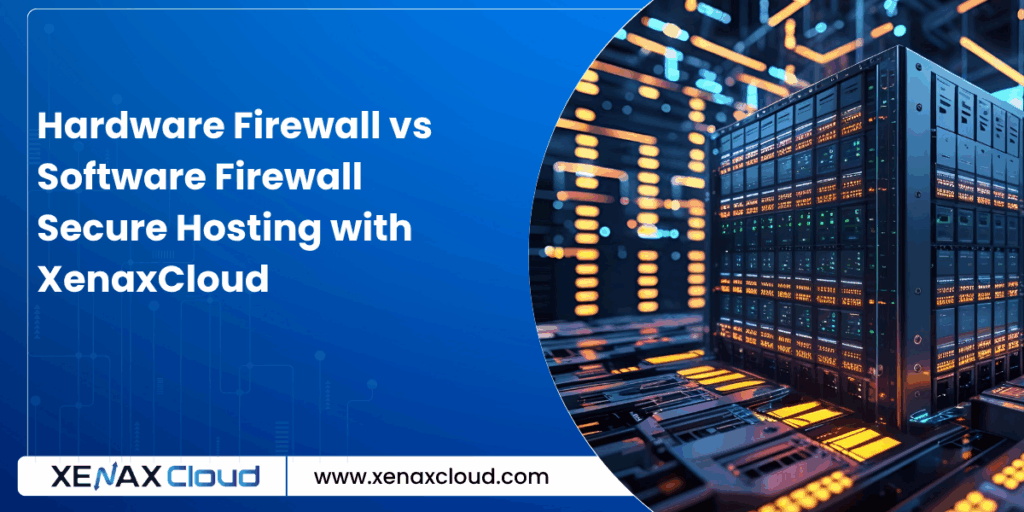
FAQs
- What is hardware firewall vs software firewall?
Hardware firewall vs software firewall compares physical devices (hardware) to software programs for network security. XenaxCloud’s Dedicated Servers support hardware firewall integration. - What is a hardware firewall?
A hardware firewall is a physical device filtering network traffic. XenaxCloud’s Dedicated Servers are ideal for enterprise-grade hardware firewall setups. - What is the software firewall difference?
The software firewall difference lies in its installation on servers versus standalone hardware firewalls. XenaxCloud’s VPS Server supports software firewalls. - Why choose XenaxCloud for secure hosting?
XenaxCloud’s Dedicated Servers offer 99.5% uptime and support both hardware firewall and software firewall setups. - Can I manage my server remotely with XenaxCloud?
Yes, use Indian RDP for secure management of Dedicated Servers or VPS Server. - Is XenaxCloud’s hosting secure?
Yes, XenaxCloud provides free SSL, DDoS protection, and firewall support for secure web hosting India.
Conclusion
Choosing between hardware firewall vs software firewall is key to securing your online presence. XenaxCloud’s Dedicated Servers offer robust hardware firewall integration, while VPS Server and Shared Hosting support software firewalls. With an India-based data center, 99.5% uptime, and services like Indian RDP, Domains, and Reseller Hosting, XenaxCloud ensures secure and reliable web hosting India. Start securing your servers with XenaxCloud’s Dedicated Servers today at XenaxCloud.com

